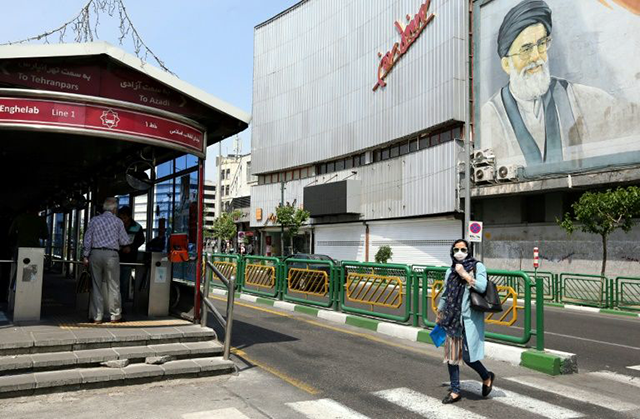- International News
- Web-2020-04-22 | 06:35 pm

According to Health Ministry spokesman Kianoush Jahanpour, the latest fatalities in the past 24 hours brought the total to 5,297, in one of the world's deadliest outbreaks.
The foreign prisoners were among 100,000 inmates temporarily released in several stages since March.
They included British-Iranian woman Nazanin Zaghari-Ratcliffe, arrested in 2016 and serving a five-year jail term for sedition.
"What Iran has done in guaranteeing prisoners' health and granting furlough to them is a significant move" compared with what other countries had done, said judiciary spokesman Gholamhossein Esmaili.
A panel of UN human rights experts last week called on Iran to expand the list of inmates it has temporarily released over the COVID-19 outbreak to include "prisoners of conscience and dual and foreign nationals".
It also raised concerns about the spread in detention facilities of the virus that causes the COVID-19 disease.
In response, Esmaili said Iran should not be criticised for "discriminatory conduct" as it had an "excellent" track record compared with Britain and the United States.
Many businesses reopen
According to Jahanpour, an additional 1,297 cases of COVID-19 infection detected in the past 24 hours brought the overall total to 84,802.
But more than 60,900 of those admitted to hospital had already recovered, he said, describing it as a "significant" number.
Iran had so far carried out more than 365,700 COVID-19 tests, the ministry official said.
The country has struggled to contain the virus outbreak since reporting its first cases on February 19.
Some officials and health experts in Iran and abroad have said the country's casualty figures may be higher than those it declared.
Iran has allowed businesses to reopen after shutting most of its economy down in mid-March, except those with "high-risk" like restaurants and gyms.
The reopening of the economy has drawn criticism from health experts and even some officials from the government.
Officials have urged Iranians to refrain from using public transportation as they go back to work and lifted some traffic restrictions in the capital Tehran.
Tehran city council's transportation deputy Mohammad Alikhani said Tuesday that so far 19 taxi drivers have died from the virus and 317 have been infected.
He added that 147 bus drivers and "between 40 to 50" metro workers had also been infected, semi-official news agency ISNA reported.













